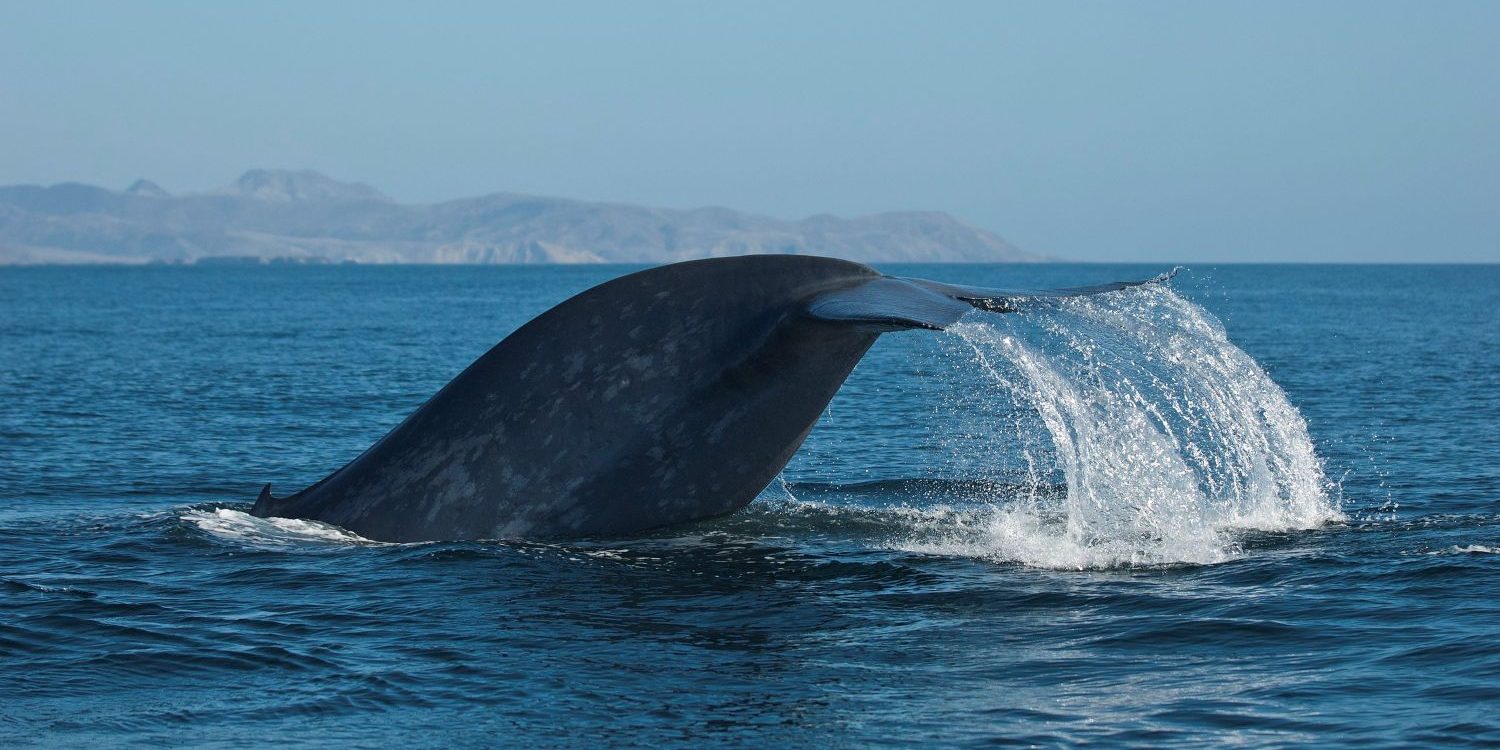Climate News: Blue whale song quiets as food becomes scarce
Blue whale song is becoming less frequent, a six-year-long study has found, as climate breakdown and heatwaves restrict the animal’s food sources.
The study, conducted by scientists from the Monterey Bay Aquarium Research Institute in California, found that blue whale vocalisations dropped by nearly 40% over the period of study, 2015–2021.
This decrease occurred at the same time that krill populations collapsed. An anomalous marine heatwave known as ‘The Blob‘ that began in 2013 covered swathes of the Pacific in abnormally high temperatures, leading to a scarcity of certain fish, such as anchovies and krill.
Krill populations are crucial to blue whales’ survival as their main food source, and when krill levels fall, blue whales suffer greatly. According to the study, their song occurrences rise and fall in accordance with krill abundance, as whales must expend more energy searching for food sources, thus reducing their ability to produce vocalisations. Minimum song occurrence was found to coincide with the most krill-impoverished year.
Decreased energy levels due to scarce food sources mean whales must conserve their energy to hunt for food, instead of reproducing
As global temperatures continue to rise, and carbon emissions show no signs of slowing, the UN predicts that the world will exceed the 1.5°C limit over pre-industrial temperatures in the next five years. Such marine heatwaves now occur with increased intensity and persistence due to this warming, a French study found.
This is also not the first instance that blue whales have been disproportionately affected by heatwaves. A New Zealand study between 2016 and 2018, led by the Marine Mammal Institute of Oregon State University, found similar results, drawing a connection between food abundance and song occurrence.
During this period, the study found that whale sounds relating to feeding reduced when krill were limited, which consequently led to a decrease in songs signalling reproductive activity. Researchers suggested that decreased energy levels due to scarce food sources mean whales must conserve their energy to hunt for food, instead of reproducing.
Scientists consider this drop in whale song a “warning”, stating that we must learn to listen to changes in the oceans to protect both marine species and ourselves from the threats of climate breakdown.

Comments